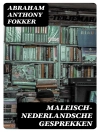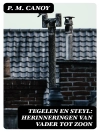In ‘Legends of the Bastille, ‘ Frantz Funck-Brentano masterfully intertwines historical narrative and folklore, shedding light on one of the most iconic symbols of the French Revolution. Through a meticulously woven tapestry of tales, the author portrays the Bastille not only as a fortress but also as a cultural and political nexus, replete with vivid stories of its infamous prisoners and the myths that arose from its tumultuous history. His literary style exhibits a blend of poetic prose and rigorous scholarship, making the text both engaging and enlightening. The book comes in the wake of a growing historical revival in the late 19th century, an era during which narratives surrounding the Revolution were increasingly scrutinized and romanticized. Frantz Funck-Brentano, a distinguished historian and writer, was deeply influenced by the socio-political upheavals of his time. Born in the aftermath of the Franco-Prussian War, he had a keen interest in the popular memory of historical events. His experiences and personal convictions regarding liberty and justice undoubtedly shaped his desire to delve into the legends surrounding the Bastille, revealing how these stories mirror the collective psyche of the French people. ‘Legends of the Bastille’ is essential reading for historians, literature enthusiasts, and anyone interested in the cultural implications of the French Revolution. Funck-Brentano’s nuanced approach to storytelling elevates this work beyond mere historical account, inviting readers to explore the intersections of myth, memory, and identity within a pivotal period of history.
Sobre o autor
Frantz Funck-Brentano (1862–1947) was a renowned French historian and librarian affiliated with the Bibliothèque de l’Arsenal in Paris. Born in Luxembourg to a family with German heritage, he became a naturalized French citizen and dedicated his life to the study of French history and culture. Funck-Brentano made significant contributions to the Romantic historiography of France, focusing notably on the Ancien Régime, the French Revolution, and the infamous Bastille prison. His scholarship is characterized by a narrative flair and a penchant for anecdotes that bring historical episodes to life. His works reflect a vast erudition and a particular interest in unveiling the myths and legends surrounding historical events and figures. Notably, his book ‘Legends of the Bastille’ (published in 1900), approaches the storming of the Bastille from a historiographical perspective, dispelling myths that had accrued over time. The work is notable for its accessible prose style and its meticulous research, which helped demystify one of the pivotal events in French history. Funck-Brentano’s literary style combines the rigor of academic research with the elements of storytelling, making his histories appealing to both scholars and general readers. His legacy lies in his ability to intertwine scholarly discourse with the enchantment of narrative, thereby broadening the popular understanding of French national history.












